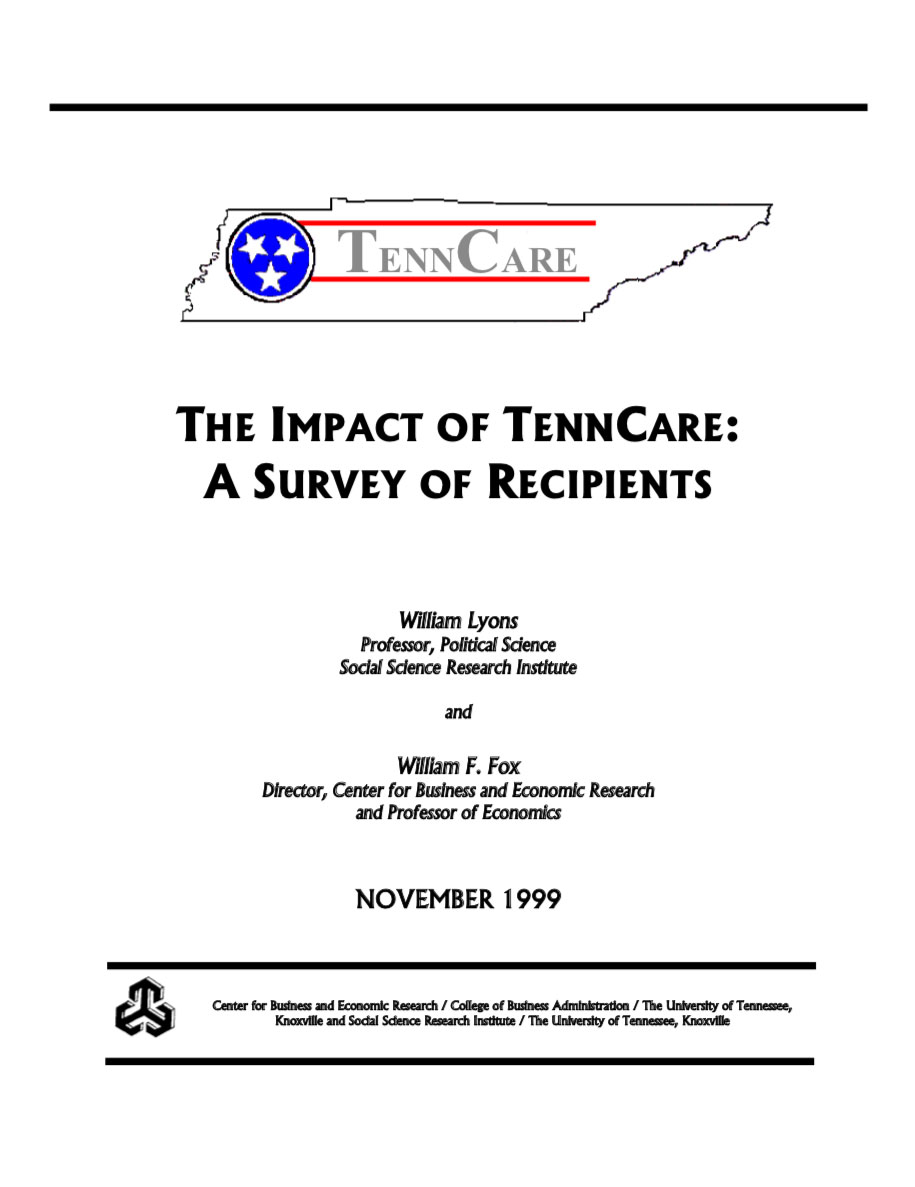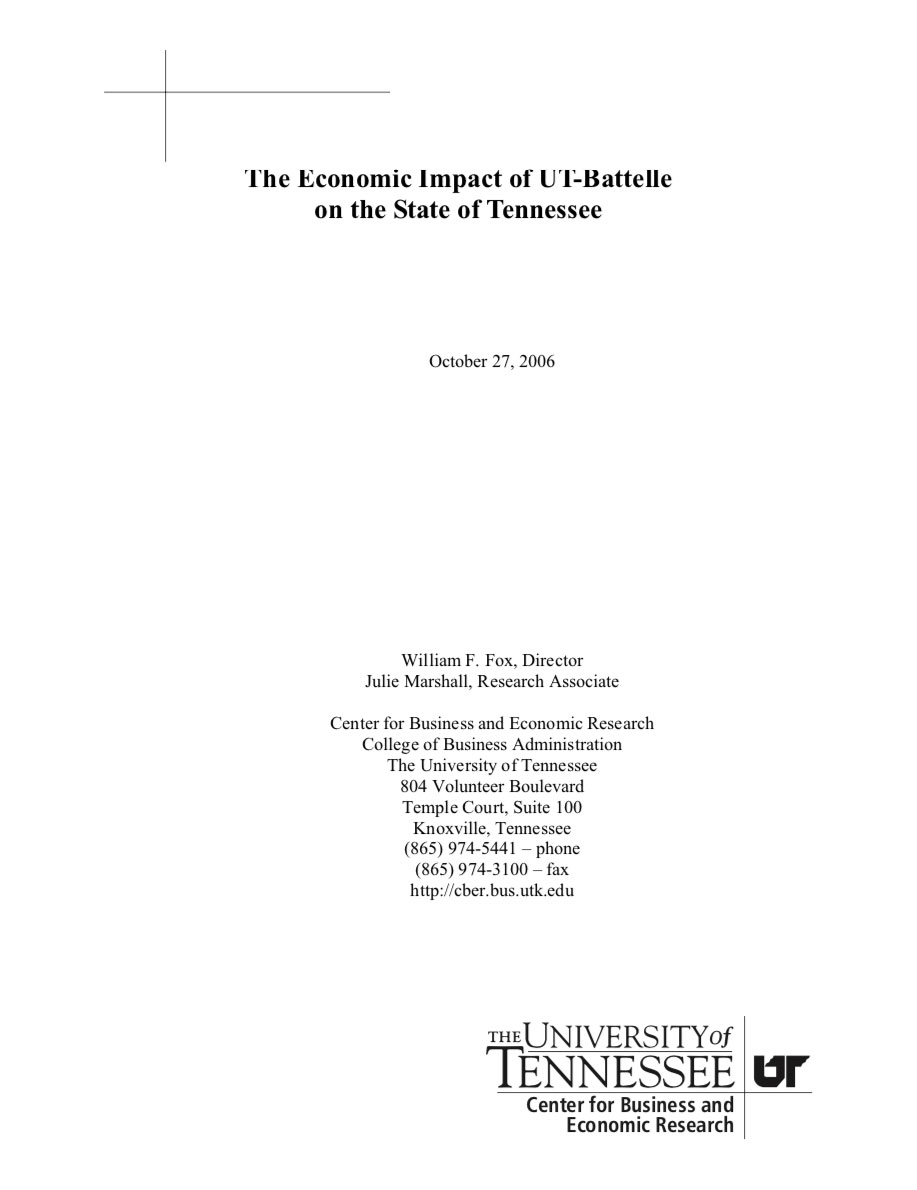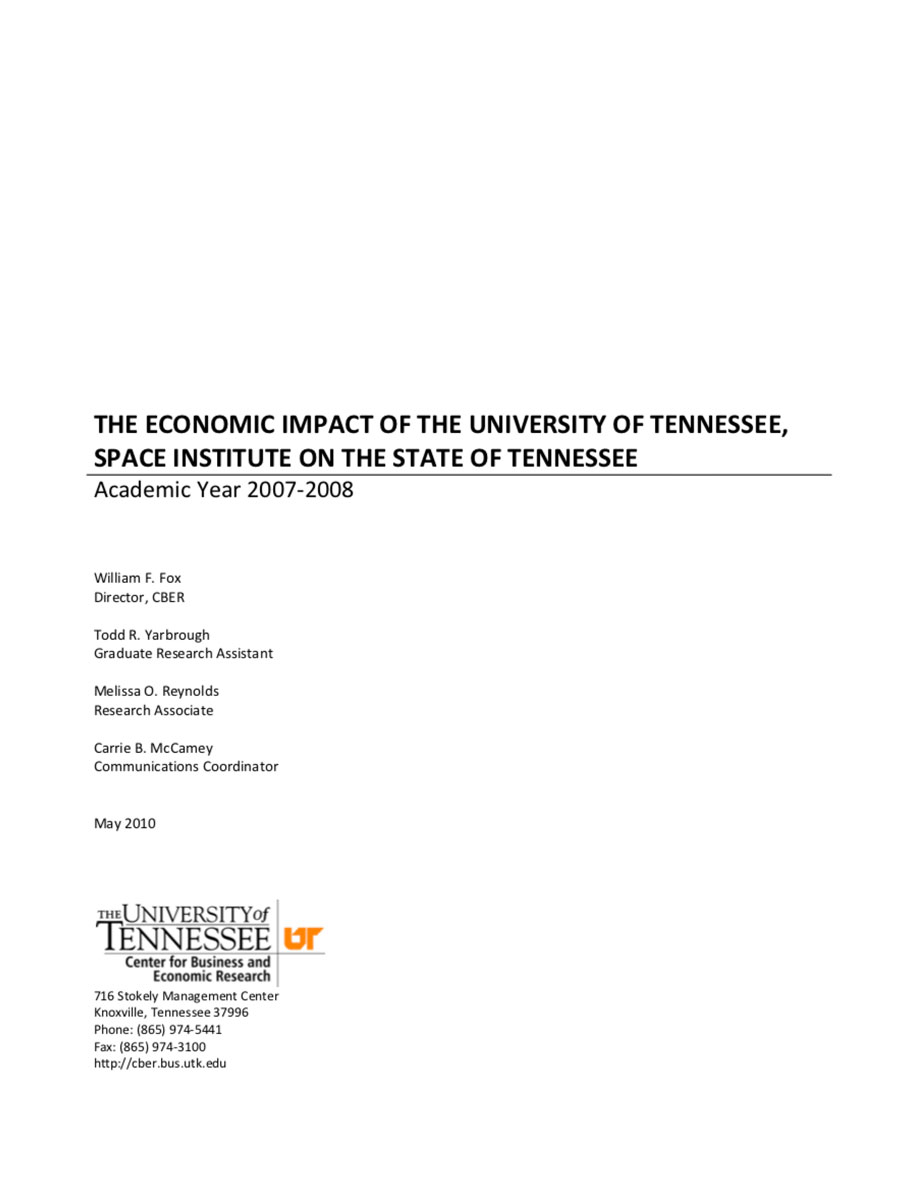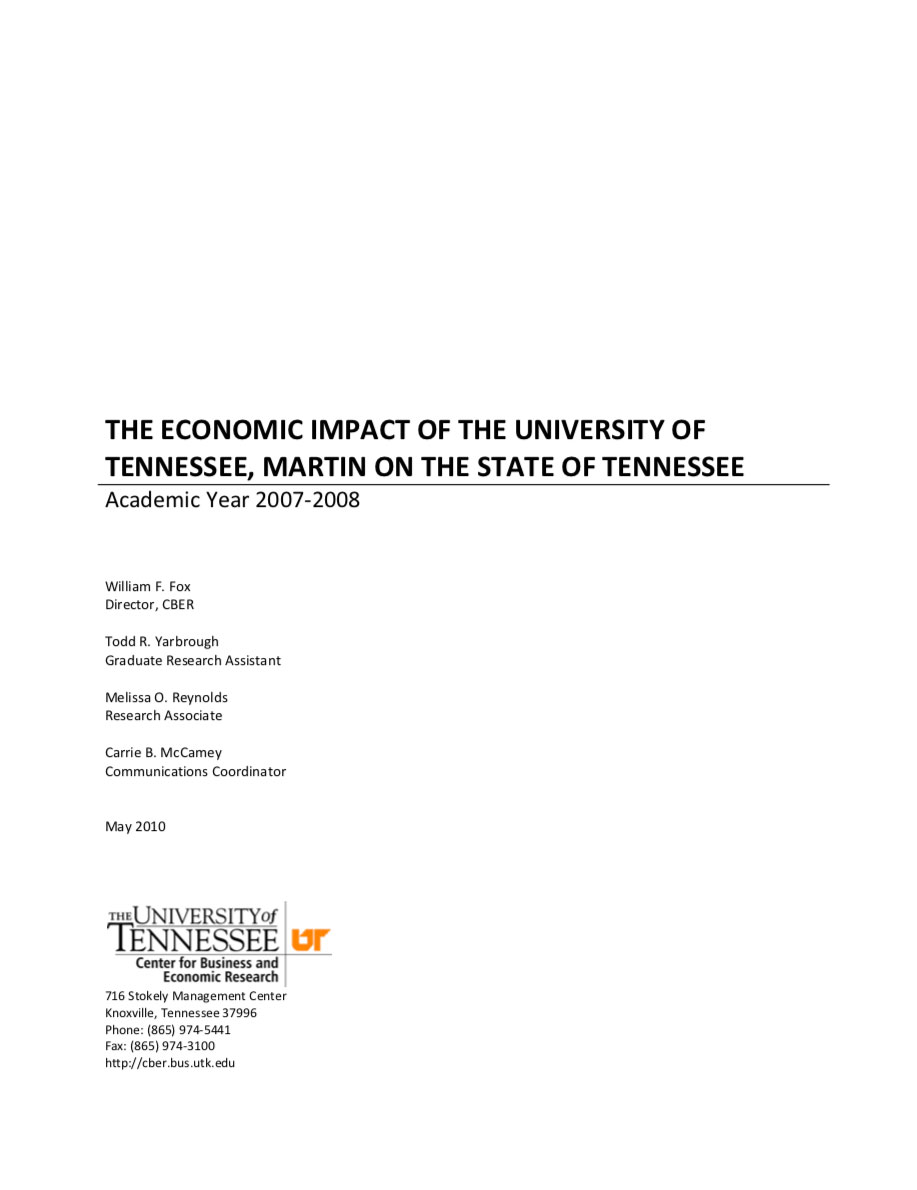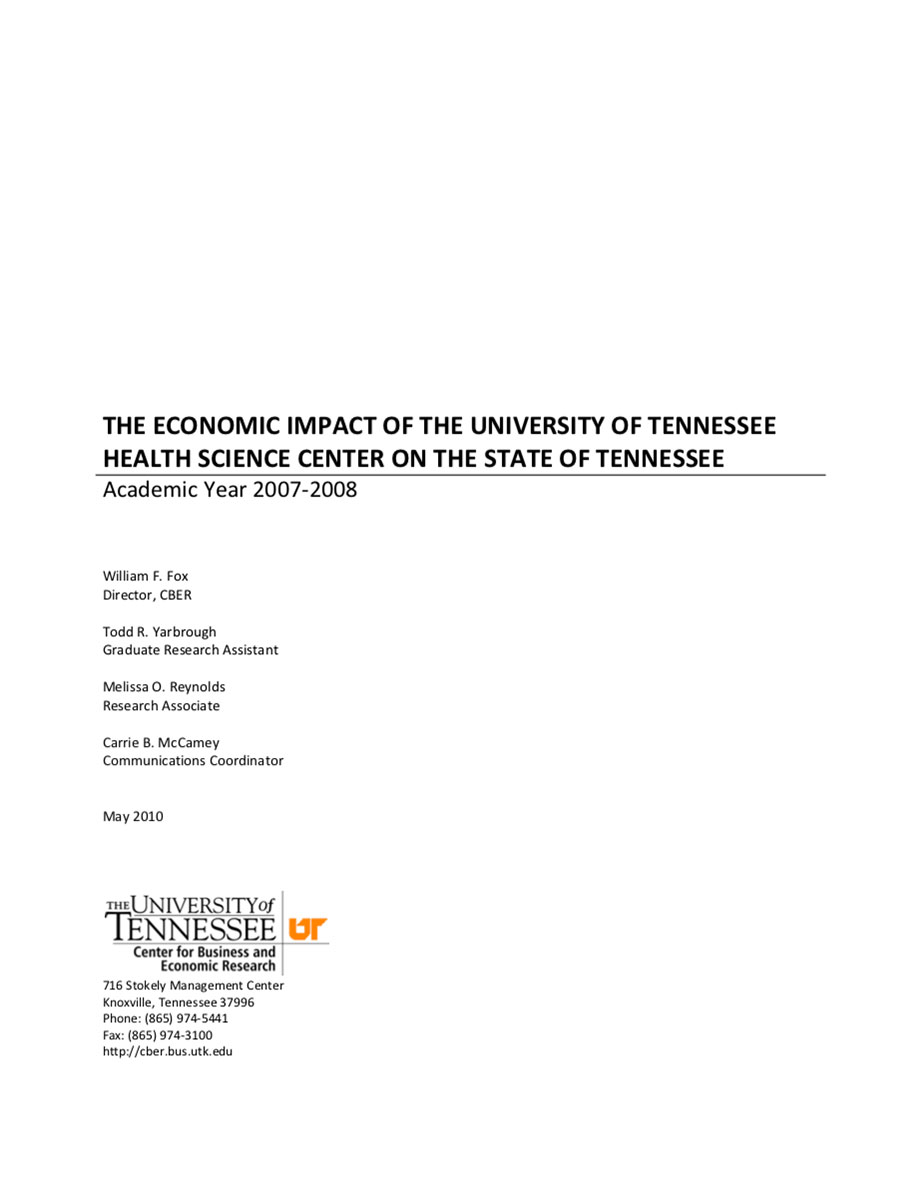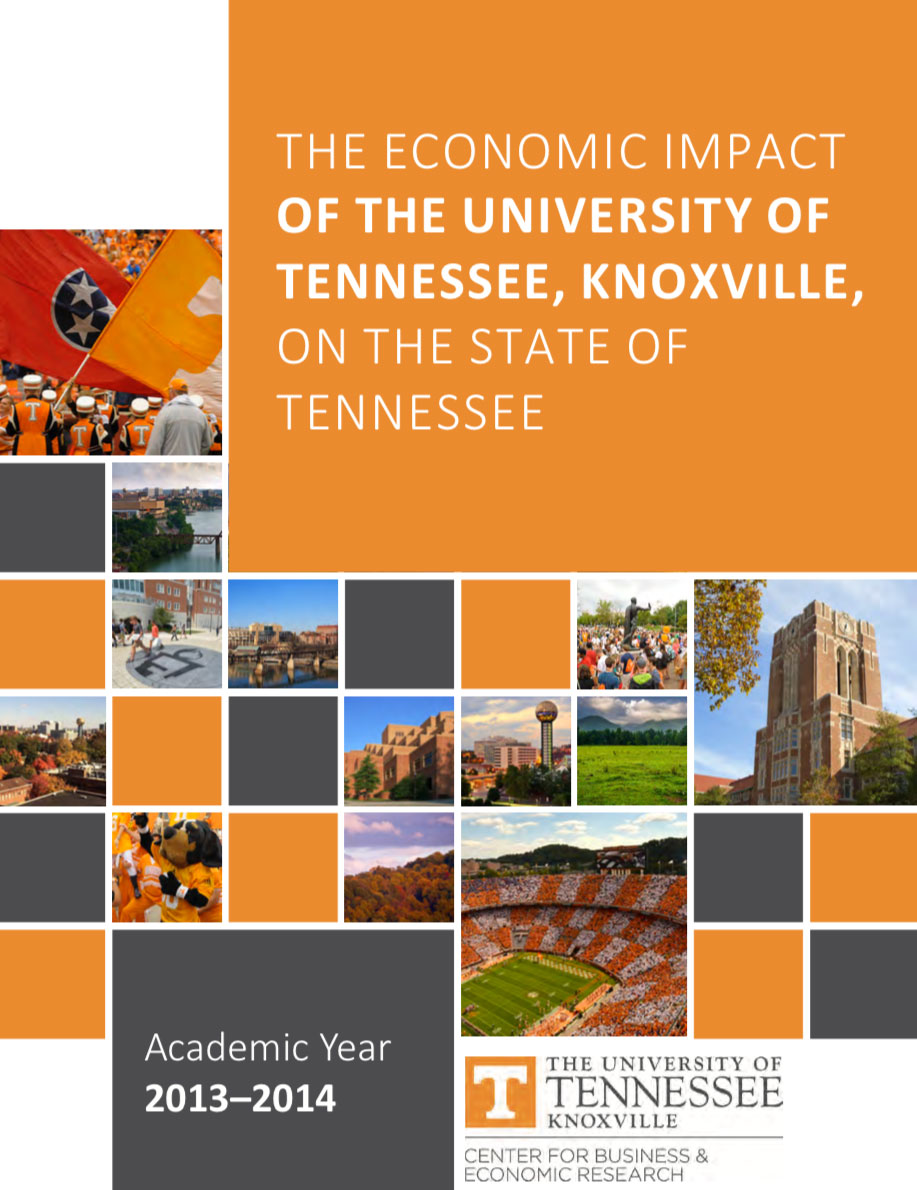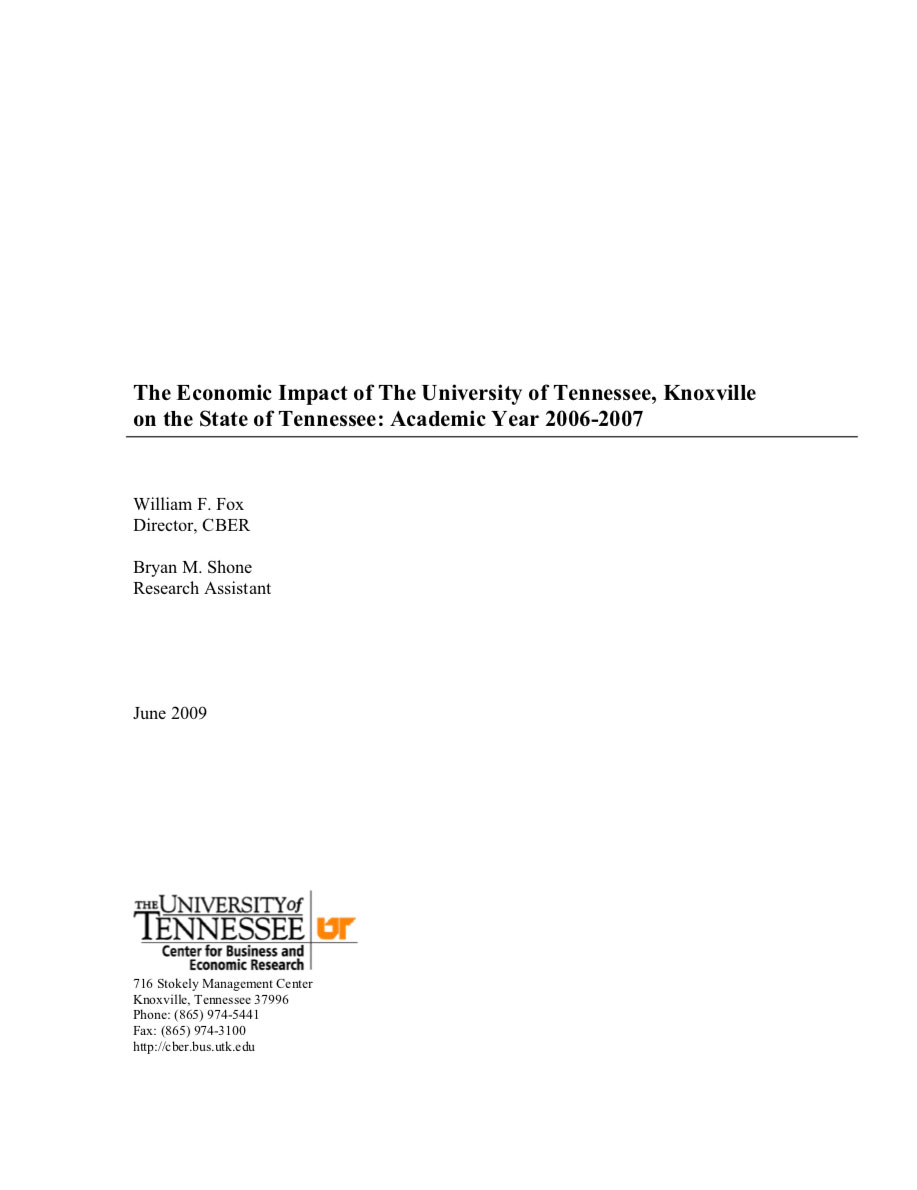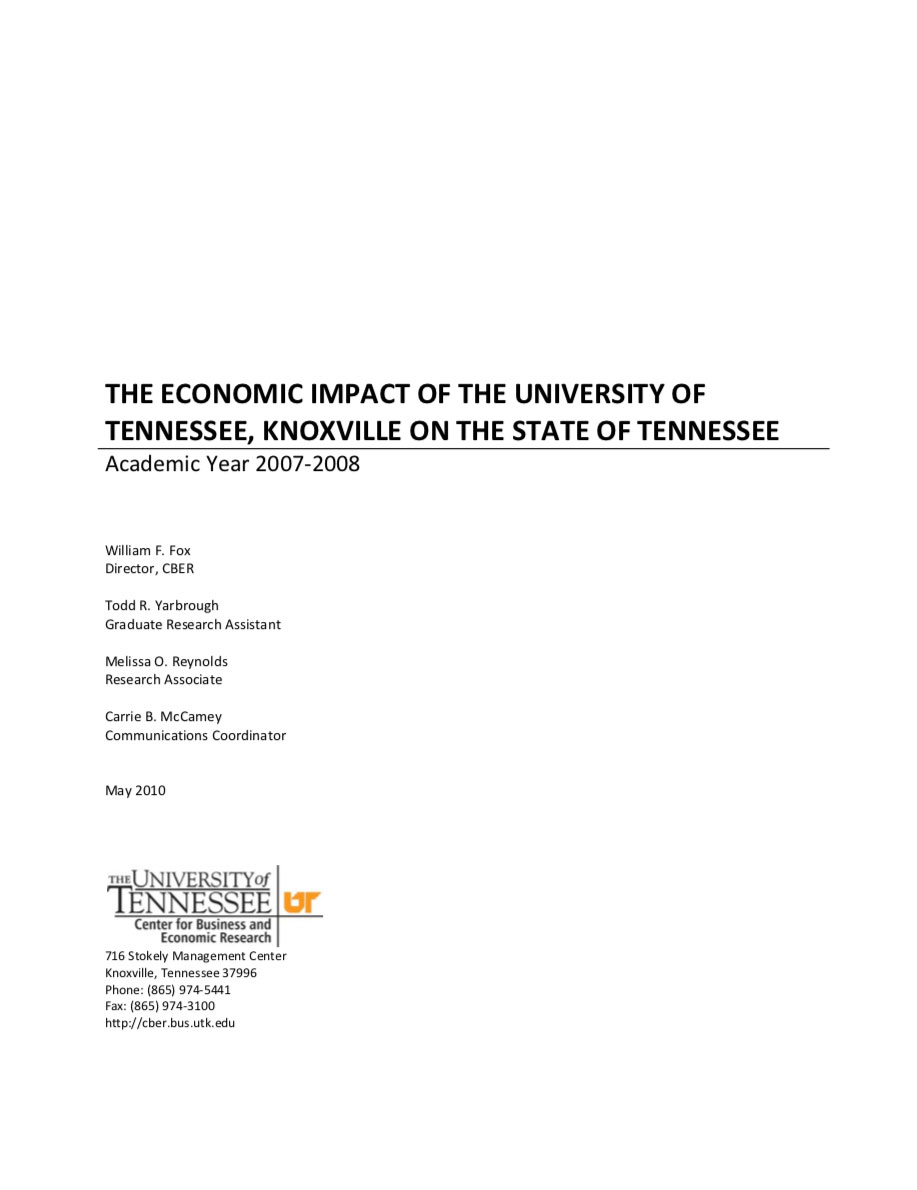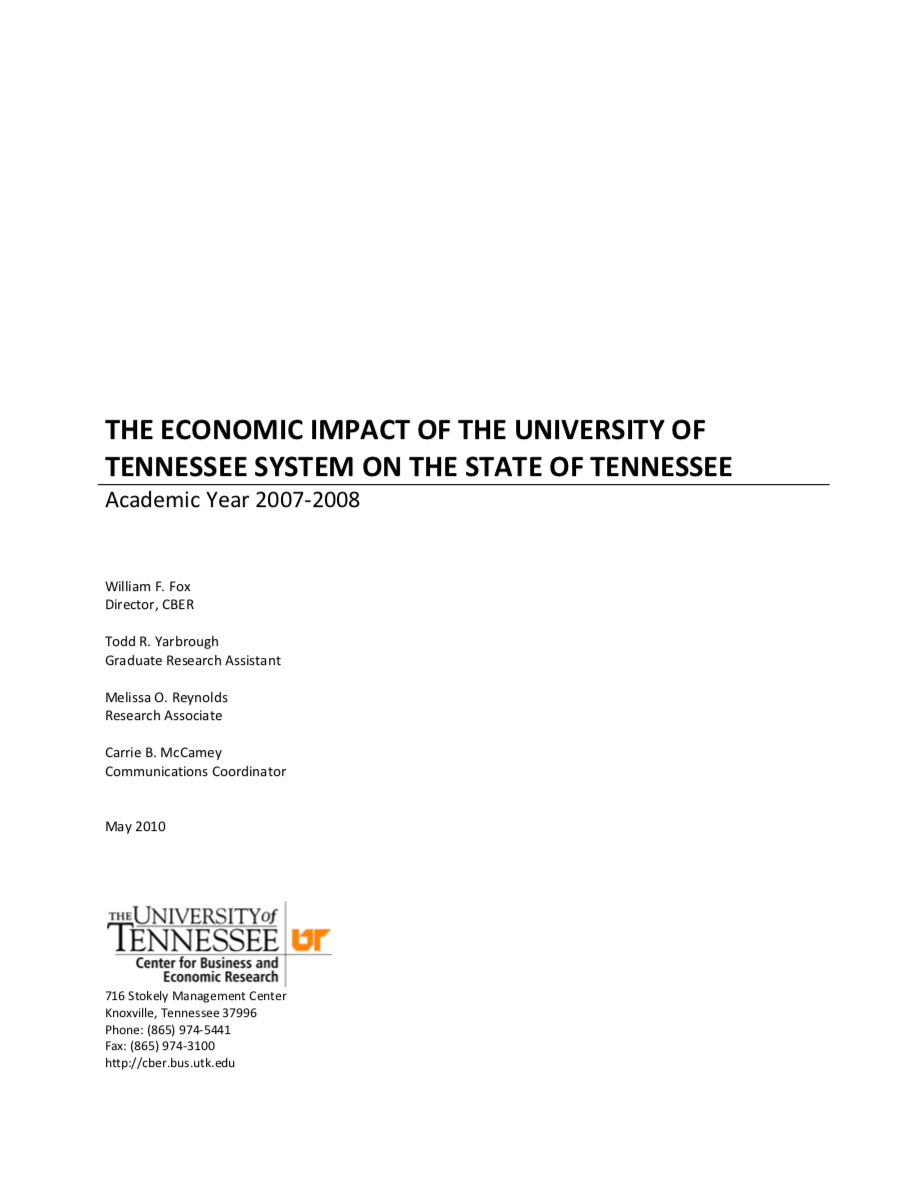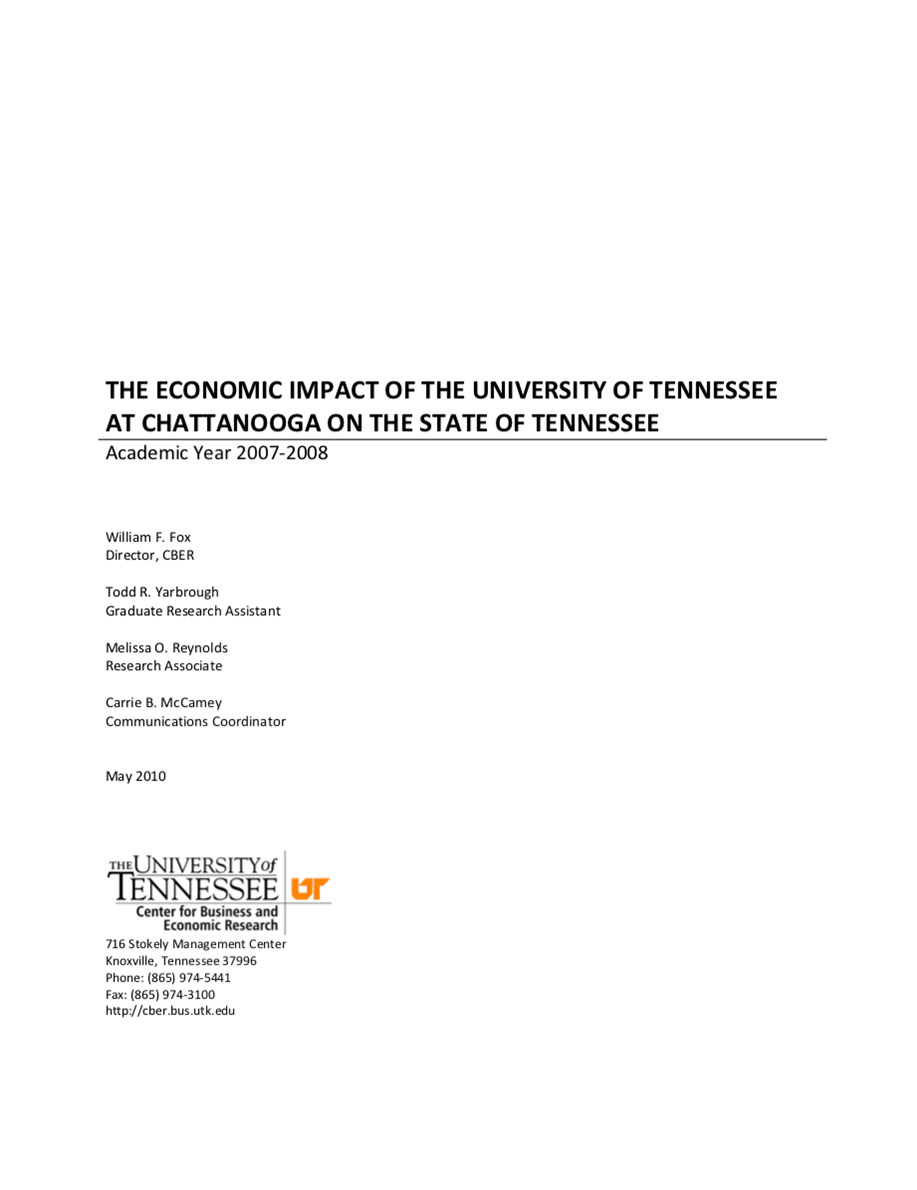PUBLICATIONS & RESEARCH
Use the search field below to find Boyd Center for Business & Economic Research publications by title, author, or date of publication.
The Economic Impact of The University of Tennessee, Martin on the State of Tennessee; Academic Year 2007-2008
Publication Date: May 1, 2010
This study summarizes the estimated impacts of the University of Tennessee at Martin (UTM) on the Tennessee economy for Fiscal Year 2008 (FY08). The economic impacts estimated in this study include income and jobs created by spending of the university and its employees and students. Tennessee’s economy benefits from the presence of UTM in several ways. First, the university provides 2,152 faculty, staff, and student employees with salaries. UTM’s payroll for FY08, both salaryand benefits, was $53.9 million. Our estimate indicates that payroll spending impacts the state economy in the amount of $107.8 million and helps create about 762 additional jobs. Second, the university spends money on goods and services in the state, which creates jobs and income. UTM made $16.3 million in non-payroll expenditures in FY08, which generated $10.5 million in income and created 256 jobs. Lastly, spending by students generates significant economic activity in the state. We estimate student expenditures for FY08 to be approximately $47.7 million, creating $20.2 million in income and creating 674 jobs. Combining the effects of payroll ($107.8), non-payroll ($10.5), and student spending ($20.2), we find that UTM generates a total of $138.5 million in income and creates 3,844 jobs for the state of Tennessee, including those currently on university payroll. In addition, we estimate that $15.1 million is generated in state and local tax revenue from the presence of the university.The Economic Impact of The University of Tennessee, Martin on the State of Tennessee; Academic Year 2007-2008
The Economic Impact of the University of Tennessee, Knoxville, on the State of Tennessee: Academic Year 2013-2014.
Publication Date: November 1, 2014
The Tennessee economy and its residents benefit from the University of Tennessee, Knoxville, through the creation of jobs, incomes, and tax revenues. UT also provides Tennessee with many qualitative effects, such as a trained labor force, visibility around the world for its research, and public service benefits. First, the university provides 9,263 faculty, staff, and student employees with salaries, which directly impacts the state’s economy. UT’s payroll spending for fiscal year 2014, including fringe benefits, totaled $522.5 million. UT also generates income and jobs for the state indirectly by spending money on goods and services in Tennessee. Nonpayroll spending for the university amounted to $545.0 million in FY14. Combined with the indirect economic benefit for the state’s economy as incomes are spent and re-spent, UT creates an additional $894.8 million in income and 18,682 jobs in addition to those working on campus.
The Economic Impact of The University of Tennessee System on the State of Tennessee; Academic Year 2007-2008
Publication Date: May 1, 2010
This study summarizes the estimated impacts of the University of Tennessee system (UT System) on the Tennessee economy for Fiscal Year 2008 (FY08). The economic impacts estimated in this study include income and jobs created by spending of the university and its employees and students. Tennessee’s economy benefits from the presence of the UT System in several ways. First, the university provides 28,487 faculty, staff, and student employees with salaries. UT System’s payroll for FY08, both salary and benefits, was $1.1 billion. Our estimate indicates that payroll spending impacts the state economy in the amount of $2.1 billion and helps create about 15,050 additional jobs. Second, the university spends money on goods and services in the state, which creates jobs and income. The UT System made $334.5 million in non-payroll expenditures in FY08, which generated $224.2 million in income and created 5,230 jobs. Lastly, spending by visitors attending athletic events and by students generates significant economic activity in the state. We estimate student expenditures for FY08 to be approximately $348.0 million, creating $147.3 million in income and creating 4,879 jobs. Combining the effects of payroll ($2.1 billion), non-payroll ($224.2 million), and student and visitor spending ($147.3 million), we find that the UT System generates a total of approximately $2.5 billion in income and creates 53,645 jobs for the state of Tennessee, including those currently on university payroll. In addition, we estimate that $237.6 million is generated in state and local tax revenue from the presence of the university system.


